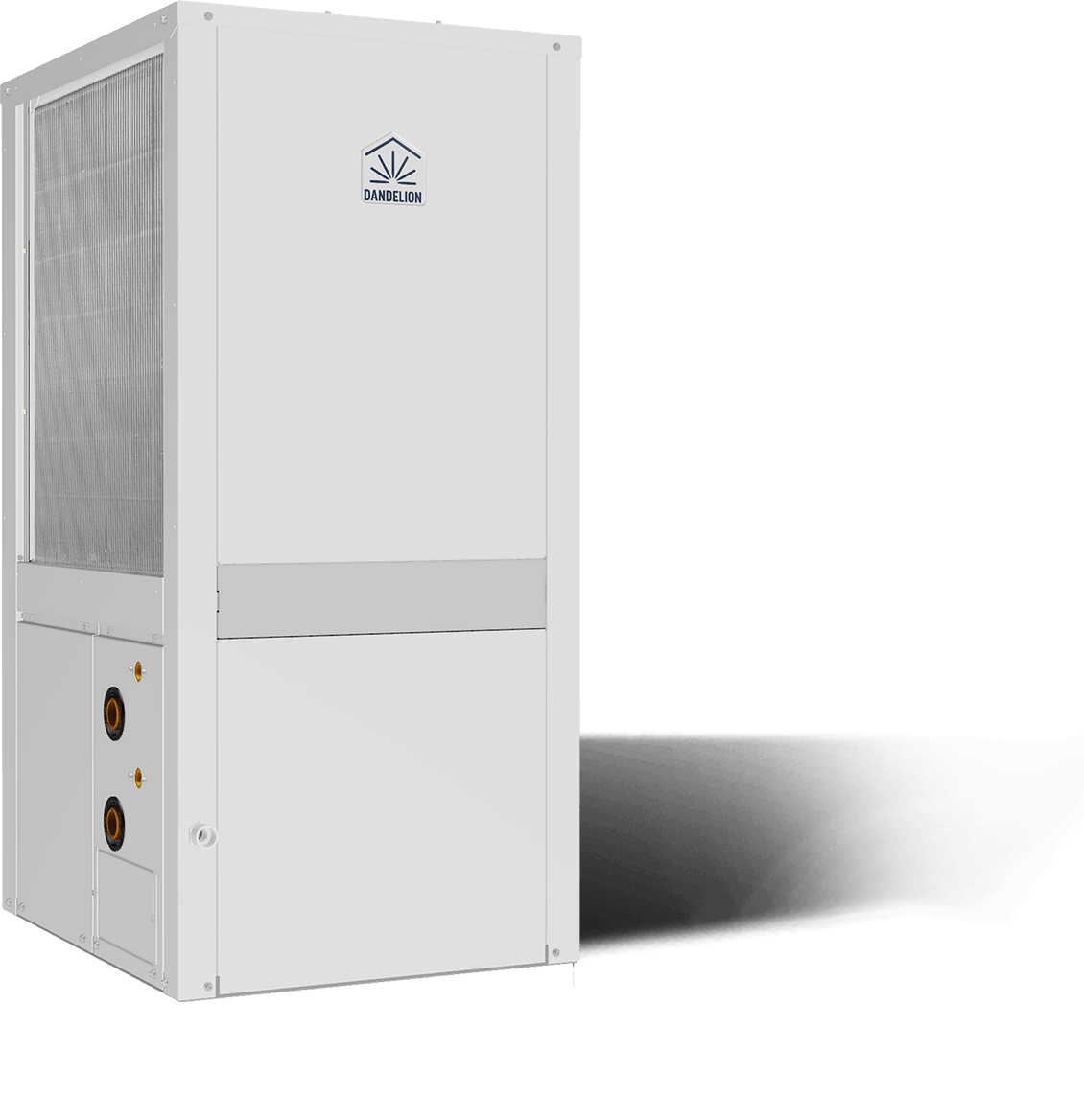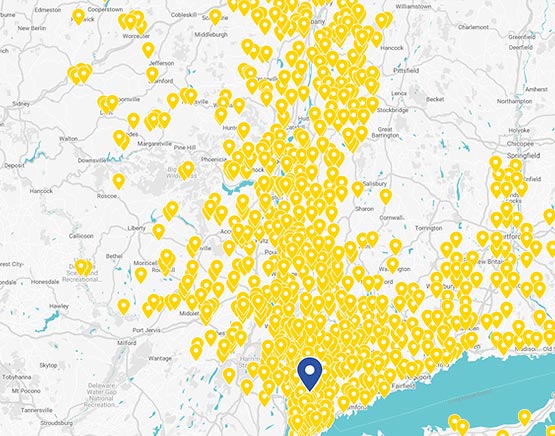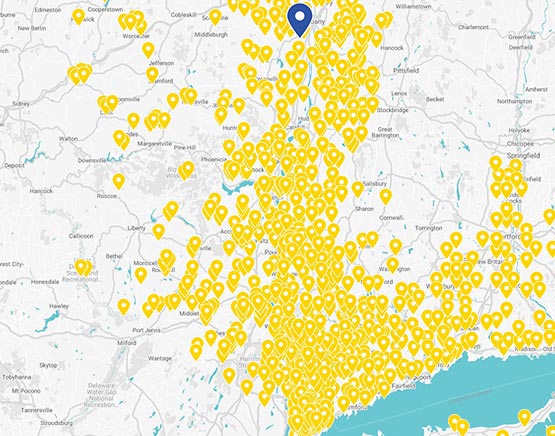Get the latest news and stories about geothermal straight to your inbox.

 Get it for $0 down
Get it for $0 down
The Dandelion Energy home geothermal system replaces your home’s existing air conditioning and heating equipment with a powerful heat pump and safe, underground pipes that move heat between the earth and your home.
In the winter, the ground loops move heat stored in the ground into your home. In the summer, the ground loops returns heat from your home to the ground. This means installing a geothermal air conditioner can reduce your electricity use by 25 to 50 percent!



When it comes to efficiency, geothermal AC beats conventional central AC by far. Geothermal heat pumps use the steady temperatures from the Earth and release heat into the cool underground, which makes it 30-40% more efficient than a conventional AC. Installing a geothermal air conditioner can reduce your electricity use by 25 to 50 percent!
 Convenience
Convenience
Geothermal is pure convenience compared to conventional HVAC. At a minimum, conventional heating and cooling require two distinctly different systems for different seasons. In the summer you likely use central AC for cooling and in the winter your home is heated by a central furnace that is powered by natural gas, fuel, or oil.
Geothermal is a simple, straightforward, and convenient 2-1 system that provides both heating and cooling. Instead of installing, operating, and maintaining two separate pieces of HVAC equipment in your home, geothermal offers an energy-efficient, cost effective heating and cooling system for the price of one.
 Built to Last
Built to Last
Geothermal Systems are durable, long-lasting and predictably low-maintenance. The 20+ year lifespan of the Dandelion Air and 50+ year lifespan of the ground loops ensure reliable cooling for decades to come, plus you get the added benefit of a 2-1 HVAC system that can be used for heating as well.
A conventional central air conditioning system will typically last between 12 to 15 years. Often, the main components significantly degenerate within the first 5 to 10 years, causing a steady decline in efficiency. Unlike geothermal, conventional AC requires regular maintenance and is more likely to incur damage as the compressor is exposed to the elements.
The U.S. EPA says geothermal heat pumps are “the most energy-efficient, environmentally clean, and cost-effective systems for heating and cooling buildings.” Installing geothermal is the single biggest thing a homeowner can do to reduce their CO2 emissions. Conventional Air conditioners in the U.S. alone release over 100 million tons of carbon dioxide into the atmosphere each year.
Geothermal uses the natural heat energy stored in the Earth, an abundant, renewable resource that reduces greenhouse gas emissions and lessens the negative environmental footprint associated with conventional ACs. To learn more about the environmental impact of geothermal click here.
 Safer, Healthier Home
Safer, Healthier Home
Upgrading to geothermal AC is one of the most impactful things you can do to support a healthier home environment. Geothermal systems don’t burn fossil fuels at all, whether in the summer or the winter. This eliminates the risk of carbon-monoxide poisoning which can cause sickness or even death.
A geothermal system doesn’t bring outside air indoors regularly like conventional HVAC equipment. As a result, pollutants like pollen, dust and dirt can’t impact your indoor air quality as easily.
 Increase Your Home's Value
Increase Your Home's Value
Studies show that homes with new, energy-efficient features sell quicker and for more money than homes with outdated, old systems. More and more buyers in today’s market want long-lasting appliances like Geothermal that reduce their energy costs and their carbon footprint.
Geothermal provides stable, even temperatures throughout the home during the hottest summer days. Since geothermal heat pumps rely on the constant energy underground, it’s unaffected by outdoor air temperatures and extreme weather conditions. No matter how hot the aboveground temperature gets, the ground loops will always have access to the constant 55°F ground temperature.




